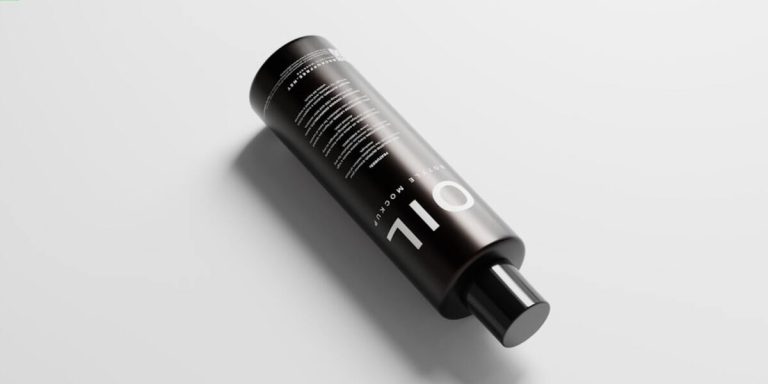Health Problems That Cause Hair Loss: Unveiling the Hidden Link
When it comes to our crowning glory, hair health often becomes a primary concern. But certain underlying conditions are notorious ‘health problems that cause hair loss’, operating behind the scenes and leading us on an unexpected journey towards poor scalp wellness.
Understanding these hidden links between specific health issues and progressive hair thinening is crucial in finding effective solutions. The purpose of this blog post is not just focusing on preventing or controlling the symptoms but also delving into knowledge about those significant yet hard-to-spot causes disrupting your overall hair well-being.
Did you know?
A surprising link exists between uncontrolled diabetes and hair loss. High blood sugar levels can cause damage to the body’s blood vessels, impairing adequate oxygen and nutrient delivery which are crucial for maintaining healthy hair growth.
Understanding Hair Loss: Medical Conditions That Can Lead to Thinning Tresses
In our quest to unravel the enigma surrounding hair loss, it is crucial to shed light on medical conditions that can lead to thinning tresses. Hair health isn’t merely about external care or topical treatments; often, the root cause of brittle and falling hair lies beneath what meets the eye.
A multitude of underlying health problems could be stealthily contributing towards your escalating hair woes. These range from hormonal imbalances like hyperthyroidism and hypothyroidism which regulate metabolism affecting follicle activity leading to either excessive growth or dramatic fall-out. The state of your immune system also significant role wherein autoimmune disorders such as alopecia areata result in random patches of baldness appearing suddenly without warning.
Disruptions in our regular circadian rhythms due to chronic illnesses like diabetes and heart diseases alter body’s biochemical dynamics resulting in physical stress manifesting externally through poor scalp health and receding hairline.
Prominent mental health issues too bear upon general well-being with depression sufferers showing signs consistent with telogen effluvium – a type widespread temporary shedding owing upheaval experienced by body during acute trauma episodes.
Recognizing the Symptoms of Alopecia Areata
Alopecia Areata is a highly unpredictable, auto-immune skin disease that results in the loss of hair on the scalp and elsewhere on your body. This condition affects millions worldwide, without any discrimination between genders or age groups. Recognizing its symptoms early can be crucial for managing it effectively.
Our bodies are complex systems where everything interconnects with something else – this includes our health and the state of our hair as well! Thus certain health problems might cause unwanted shifts in normal functioning leading to issues like hair loss – also known as Alopecia Areata.
The primary symptom of Alopecia Areata kicks off with clumps of hair falling out, leaving behind smooth round patches about one coin-size all over your scalp. In some instances these bare spots spread across larger area causing more significant losses encompassing entire areas such as eyebrows, eyelashes even beard region among men!
In rare cases people witness complete baldness called alopecia universalis which involves losing ALL BODY HAIR! While smaller percentage experiences what’s known nail pitting- an often overlooked sign involving dents/depressions dotting fingernails surface proving quite useful helping doctors diagnose alopecic conditions amidst patients reporting recent history related unusual increase hair fall rates .
How Thyroid Disorders Impact Your Hair Health
Thyroid disorders are a leading cause of hair loss. These health problems can cause hair loss in many individuals, impacting both the quality and quantity of your tresses.
The thyroid gland is responsible for producing hormones that regulate numerous critical body functions, including cell growth and metabolism. Disruptions to this delicate balance may result in various physiological changes – among them being potential harm to your crowning glory.
In conditions such as hypothyroidism or hyperthyroidism – an underactive or overactive thyroid respectively- our bodies might react by shedding more hairs than usual. Hypothyroidism often leads to dry, brittle strands which break off easily adding further insult to the injury inflicted on our locks due to increased fall-out rate.
On the other hand, with Hyperthyroidism-related derangements where there’s too much circulating hormone could also stimulate excessive hair shed leaving sparse patches all across scalp; this phenomenon tends be rather uniform instead localizing merely within certain spots alone like male pattern baldness typically does.
Remember! it’s not just hormonal disruptions at play here – autoimmune diseases associated with these imbalances only exacerbate situation: Hashimoto’s disease (related Hypothyoroid), Graves’ Disease (analogous Hyper cases) have strong links towards precipitating significant thinning overall even if apparently unrelated initially glance!
Nutritional Deficiencies and Their Role in Hair Fall
Nutritional deficiencies often play a key role in hair fall, an issue many people experience globally. In our increasingly fast-paced lives of 2023, processed foods have become the norm rather than exception. While they may satisfy hunger quickly and easily, these meals seldom deliver all the essential nutrients that your body – including your hair – requires to stay healthy.
A lack of certain vital minerals and vitamins can significantly contribute to hair loss problems. For instance, insufficient Zinc intake might disrupt hair growth cycles and lead to shedding or thinning strands over time. Similarly inadequate uptake of Vitamin A could result in dryness causing brittle locks more prone to breakage.
Apart from this Iron is another critical nutrient whose deficiency has been directly linked with Alopecia Areata – a condition causing clumps of bald spots on one’s scalp due to the immune system attacking its own follicles resulting in distressing patchy alopecia when left unchecked for long term periods.
The Link Between Iron Levels and Healthy Hair Growth
Iron deficiency, a common health problem that causes hair loss, can impede your regular hair growth cycle. As one of the essential nutrients for bodily functions and general wellbeing, low iron levels may potentially lead to undesirable changes such as thinning or shedding of hair strands.
The role Iron plays in promoting healthy hair is significant. This mineral aids cellular production which influences both skin cell regeneration and natural cycles responsible for lush locks’ development.
When your body doesn’t have sufficient iron supply from your diet or absorption process hitching due to other health complications like Celiac disease or gastritis – it’s no surprise that symptoms like frailty and dullness surface on those once radiant tresses!
Insufficient iron reserves lead to poor oxygen transportation to scalp cells and reduced nourishment. This lack of fuel disrupts the life-cycle balance at the top of our head, causing premature aging. Hair falls out before maturing, making way for a new generation earlier than expected.
So essentially if you’re wondering why there are more hairs on your brush than usual- check with a healthcare provider about potential deficiencies because maintaining optimal nutritional intake has higher stakes when considering follicular fate beyond just aesthetic appeal.
Biotin Shortages: Connecting Diet to Hair Loss
“Biotin, also popularly known as vitamin B7 or H, is essential for the body to convert food into energy. It not only impacts your metabolism but plays a vital role in maintaining healthy skin and hair. Research has shown that biotin deficiencies can result in health problems that cause hair loss.
Consider this: Hair strands are made of keratin – a type of protein. And proteins need sufficient vitamins, including biotin, to preserve their structure and strength. When there’s a shortage of biotin in our diet, it weakens the protein structure – resulting in brittle nails and thinning or falling out of hair.
But what causes these shortages? The reasons vary from person-to-person but could include factors like poor nutrition habits such as consumption predominantly fast-foods which lack crucial minerals & vitamins for proper bodily function; genetic predisposition where even an adequate diet might fail due to malabsorption issues; certain medications inhibiting nutrient absorption and symptoms related with long-term conditions like Crohn’s disease etc.
In 2023 we see an increased demand for dietary supplements owing to rising awareness about nutritional deficiencies alongside changes associated with modern lifestyles thereby boosting potential market growth within supplement industry along with wide-spread application areas extending beyond just improving physical beauty aspects i.e., towards overall fitness & well-being too.
Hormonal Imbalances as Culprits for Compromised Hair Strength
Hormonal imbalances indeed play a critical role in determining the strength and vitality of your hair. Changes in hormone levels can trigger various health problems that cause hair loss, disrupting your overall hair health journey. They silently deplete strands from their original vigor and radiance, often without you even noticing until it becomes significant.
Take for example one common perpetrator – stress hormones like cortisol causing what experts call “telogen effluvium”. This condition brings about an unfortunate scenario where more hairs than normal prepare to fall out. It’s essential to maintain hormonal balance not just for optimal physical wellness but also as a fundamental step towards safeguarding our precious locks against unwarranted damage.
For women particularly, imbalances such as Polycystic Ovary Syndrome (PCOS) or menopause bring shifts in estrogen-progesterone harmony which could severely affect follicle function leading to thinning or shedding of tresses.
Estrogen Fluctuations and Their Effect on the Hair Lifecycle
Estrogen, a vital hormone that significantly influences hair health, may fluctuate due to various reasons such as stress or certain health problems. When these fluctuations occur in an erratic manner, they can disrupt the standard life cycle of your hair follicles and prompt issues like compromised strength and texture leading to significant concern – premature hair loss.
Highlighted below are some prominent pointers discussing how this connection plays out:
Estrogen Dominance: This happens when there is an excess amount of estrogens present in comparison with other hormones like progesterone. It creates a hormonal imbalance which can accelerate shedding phases within your active growth cycle (Anagen phase) resulting in noticeable patches missing from common areas- temples, crown etc.
Perimenopause/Menopause: During perimenopausal or menopausal stages women tend to face abrupt decrease in their oestriol production capabilities causing one fit for midlife crisis- ‘menopausal alopecia’. Herein hairs end up spending more time weeping over telogen resting zones than actively growing new ones making density take quite a hit!
Addressing PCOS-Related Scalp Issues Through Early Detection
Polycystic ovary syndrome, also known as PCOS, stands tall among the leading health problems that cause hair loss in women. This multifaceted condition often leads to a plethora of issues including insulin resistance, weight gain and hormonal imbalances; all factors directly impacting your scalp’s well-being.
Detecting PCOS early is crucial for mitigating its effects on hair health. The earlier you diagnose it, the sooner you could start working towards maintaining stronger and healthier strands despite having this medical condition.
For many individuals with PCOS-related scalp issues similarly begins with thinning at the crown area or an overall reduction in volume. You may notice increased shedding during showers or while brushing your mane. Remember that these symptoms can be subtle initially making them easier to be overlooked.
To identify whether a common female disorder is impacting your hair health, schedule timely blood tests. These tests check hormone levels, like testosterone, often high in those with Polycystic Ovarian Syndrome (PCOS). However, self-examinations aren’t enough or safe. Healthcare professionals should conduct regular check-ups to handle complex scenarios involving human hormones and provide accurate diagnoses instead of relying only on visible physical signs or patient-reported complaints.
Conclusion
In the vast maze of health problems that cause hair loss, it’s important to remember there is always a route back to healthy and luscious locks. Understanding these potential pitfalls are like keys on your journey – they arm you with knowledge. This insight allows for informed decisions about managing not just your overall wellness but specifically targeting those hidden links causing unwarranted changes in your crowning glory.
Don’t let these challenges undermine the beauty of having great hair! Let this understanding be the first step, don’t stop here though – delve deeper into our trove of blog posts dedicated exclusively towards “Hair Health”. Equip yourself further as we help unravel more mysteries showcasing methods or treatments optimal for maintaining vibrant and strong hairs.
After all, well-equipped warriors win their battles effortlessly!







